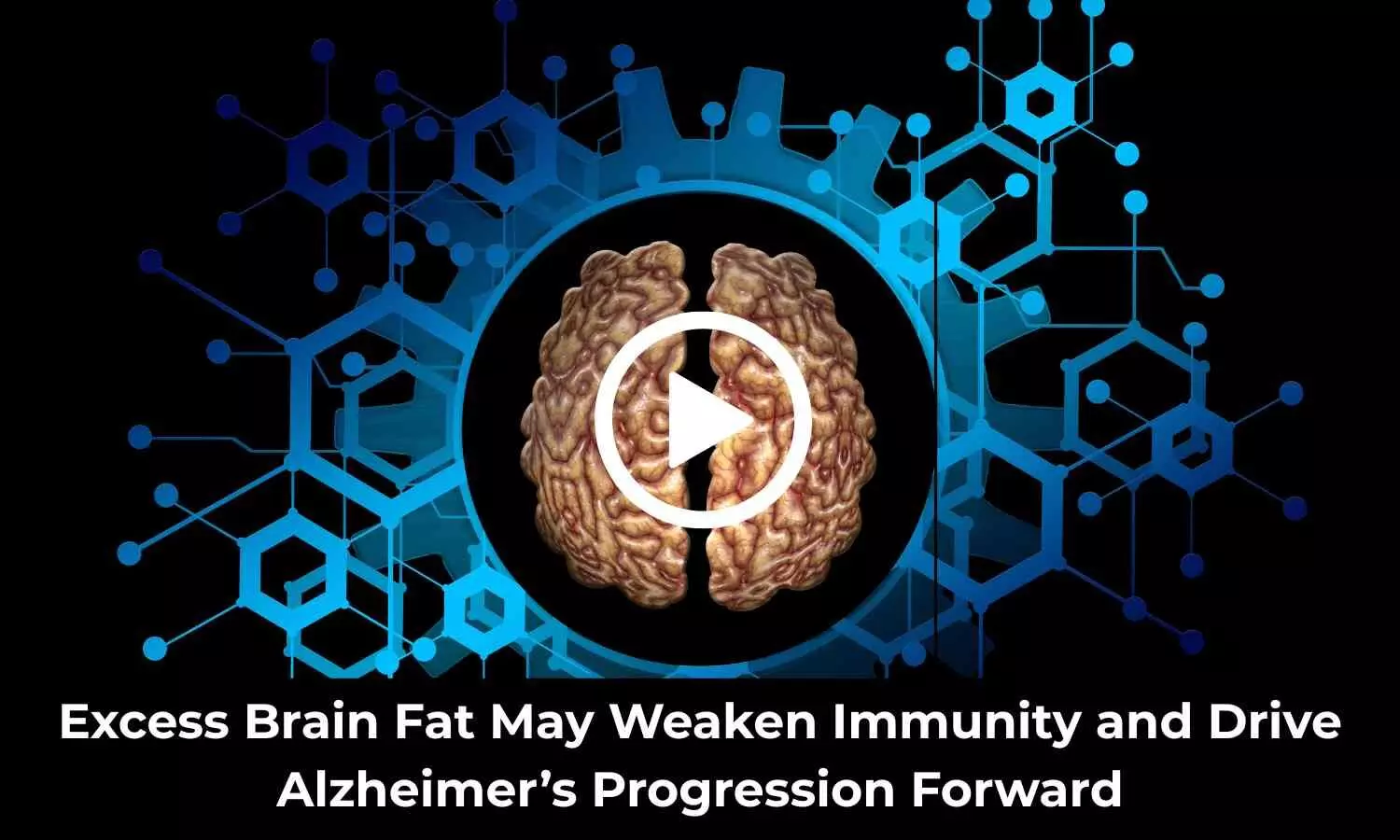Excess Brain Fat May Weaken Immunity and Drive Alzheimer’s Progression Forward: Study Suggests
- byDoctor News Daily Team
- 27 September, 2025
- 0 Comments
- 0 Mins

Thinking fatty foods only hurt your waistline? Then you will be surprised to hear that yourbrainmight be at risk, too. A groundbreaking study from Purdue University, published in the journal Immunity, revealed that excess fat buildup inside the brain’s immune cells, called microglia, could be fuelingAlzheimer’s disease. These fat-choked microglia lose their ability to clear harmful proteins like amyloid beta, weakening the brain’s healing defenses. But here’s the hopeful twist: when scientists broke down this fat, the brain’s defense system bounced back. For decades, Alzheimer’s research focused mainly on plaques and tangles of misfolded proteins. But this new work, published in Immunity, points to fat metabolism as a hidden culprit. Microglia near amyloid plaques were found to contain twice as many fat droplets as normal cells, and cleared 40% less toxic protein. To uncover this, researchers examined brain tissue from people with Alzheimer’s disease and used advanced imaging and biochemical analyses to track how microglia processed fat when exposed to amyloid plaques. They discovered that microglia closest to plaques accumulated abnormal fat droplets, driven by an overactive enzyme called DGAT2. Further experiments in animal models showed that when DGAT2 was blocked or degraded, microglia regained their ability to clear amyloid beta, boosting neuronal health. Researchers’s team discovered that targeting this enzyme—either blocking its activity or promoting its breakdown—helped restore microglial function in Alzheimer’s models. That means the brain’s own immune system could fight disease again, something drug therapies aimed directly at plaques have failed to do. The findings suggest a radical shift in how we think about Alzheimer’s: not just “protein plaques,” but “lipid plaques” may be at the heart of brain degeneration. If future therapies can rebalance fat metabolism insidebrain cells, researchers believe it could open an entirely new path to preventing or even slowing the disease. Reference:Prakash, Priya, Manchanda, Palak, Paouri, Evi, Bisht, Kanchan, Sharma, Kaushik, Rajpoot, Jitika; Amyloid-β induces lipid droplet-mediated microglial dysfunction via the enzyme DGAT2 in Alzheimer’s disease; Immunity; 2025; doi: 10.1016/j.immuni.2025.04.029
Disclaimer: This website is designed for healthcare professionals and serves solely for informational purposes.
The content provided should not be interpreted as medical advice, diagnosis, treatment recommendations, prescriptions, or endorsements of specific medical practices. It is not a replacement for professional medical consultation or the expertise of a licensed healthcare provider.
Given the ever-evolving nature of medical science, we strive to keep our information accurate and up to date. However, we do not guarantee the completeness or accuracy of the content.
If you come across any inconsistencies, please reach out to us at
admin@doctornewsdaily.com.
We do not support or endorse medical opinions, treatments, or recommendations that contradict the advice of qualified healthcare professionals.
By using this website, you agree to our
Terms of Use,
Privacy Policy, and
Advertisement Policy.
For further details, please review our
Full Disclaimer.
Recent News
AIIMS INI SS January 2026: 4 seats added in 2 spec...
- 01 November, 2025
Treatment in Myocardial Infarction and Non-Obstruc...
- 01 November, 2025
PG medical admissions 2025 commence in Bihar, chec...
- 01 November, 2025
Assam to begin NEET PG 2025 counselling from Novem...
- 01 November, 2025
Daily Newsletter
Get all the top stories from Blogs to keep track.


0 Comments
Post a comment
No comments yet. Be the first to comment!